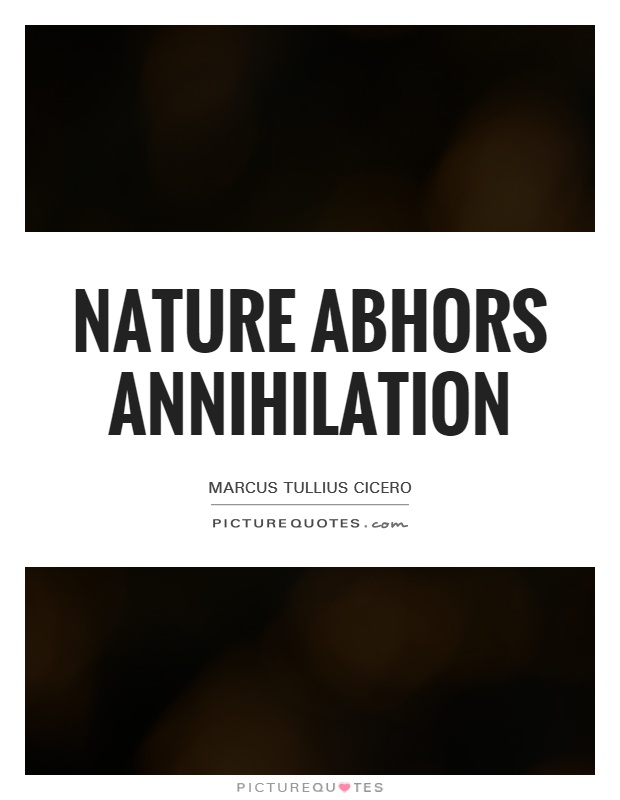Nature abhors annihilation

Nature abhors annihilation
The phrase "Nature abhors annihilation" is often attributed to the Roman philosopher and statesman Marcus Tullius Cicero. This concept reflects Cicero's belief in the inherent value and resilience of the natural world. In his writings, Cicero frequently extolled the beauty and order of nature, viewing it as a source of wisdom and inspiration.For Cicero, the idea that nature abhors annihilation can be interpreted in several ways. On a literal level, it suggests that the natural world has a built-in resistance to destruction and decay. This can be seen in the way that plants regenerate after being cut down, or how ecosystems adapt and evolve in response to changing conditions. In this sense, nature is constantly striving to maintain its balance and vitality, even in the face of external threats.
Metaphorically, the concept of nature abhorring annihilation can also be applied to human society and culture. Cicero believed that just as nature resists destruction, so too should individuals and communities strive to preserve their values, traditions, and institutions. He saw the decline of Rome as a result of moral decay and political corruption, and argued that it was essential for citizens to uphold the principles of justice, virtue, and the common good in order to prevent the collapse of society.












 Friendship Quotes
Friendship Quotes Love Quotes
Love Quotes Life Quotes
Life Quotes Funny Quotes
Funny Quotes Motivational Quotes
Motivational Quotes Inspirational Quotes
Inspirational Quotes